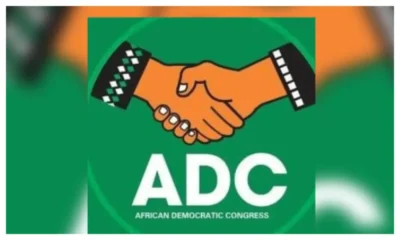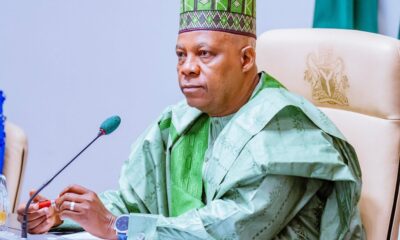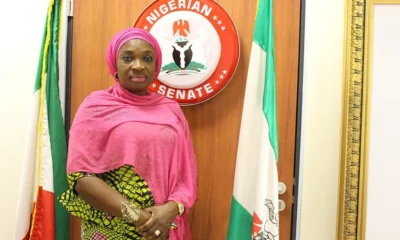Business
FG threatens to open border for cement importation
The federal government has threatened to possibly open the borders to cement importation if Nigerian cement manufacturers refuse to reduce the price of the commodity in the country.
Minister of Housing and Urban Development, Arc Ahmed Dangiwa, who made the declaration said key input materials for cement production such as limestone, clay, silica sand, and gypsum sourced within our borders, should not be dollar-rated.
Dangiwa made this known on Tuesday, February 20, in Abuja at an emergency meeting held with cement and building materials manufacturers. He said the price of gas that manufacturers are using as an excuse should not be because gas is a raw material found within the country and the excuse of an increase in mining equipment should not come up because equipment bought by these manufacturers has been used for decades and not just purchased every day.
The minister said the border was closed to the importation of cement to help local manufacturers but if the government decides to open it back for mass importation, prices of cement would crash and local manufacturers would be gravely affected.
Dangiwa who called on the manufacturers to be more patriotic said BUA cement for instance has been willing and is still willing as at the last time he spoke with them to crash the price of their cement, lower than the N7000, N8000 agreed by the manufacturers and he sees no reason why the others should not do same.
The minister in response to the manufacturers said: “The challenges you speak of, many countries are facing the same challenges and some even worse than that but as patriotic citizens, we have to rally around whenever there is a crisis to change the situation.
“The gas price you spoke of, we know that we produce gas in the country the only thing you can say is that maybe it is not enough. Even if you say about 50 percent of your production cost is spent on gas prices, we still produce gas in Nigeria it’s just that some of the manufacturers take advantage of the situation. As for the mining equipment that you mentioned, you buy equipment and it takes years and you are still using it.
“The time you bought it maybe it was at a lower price but because now the dollar is high you are using it as an excuse. Honestly, we have to sit down and look at this critically. The demand and supply should be good for you because the government stopped the importation of cement, they stopped the importation in order to empower you to produce more.
“Otherwise if the government opens the border for mass importation of cement, the price would crash but you would have no business to do and at the same time the employment generation would go down. So these are the kinds of things you have to look at, the efforts of government in ensuring things go well.”
The minister also put the blame on the Cement Manufactures of Nigeria for not regulating the price of cement in the country because earlier, the Executive Secretary of the Association, Salako James had informed the minister that the association does not discuss or determine the price of individual companies but are only made aware of prices from the market like every Nigerian.
Dangiwa said the ministry would be setting up a committee which would be comprised of representatives of each cement manufacturer in the country, its association, and the government to fashion out modalities to resolve the problem of high price of cement in the country.
Business
Gov Uba Sani appoints Ben Kure as MD of KSMC
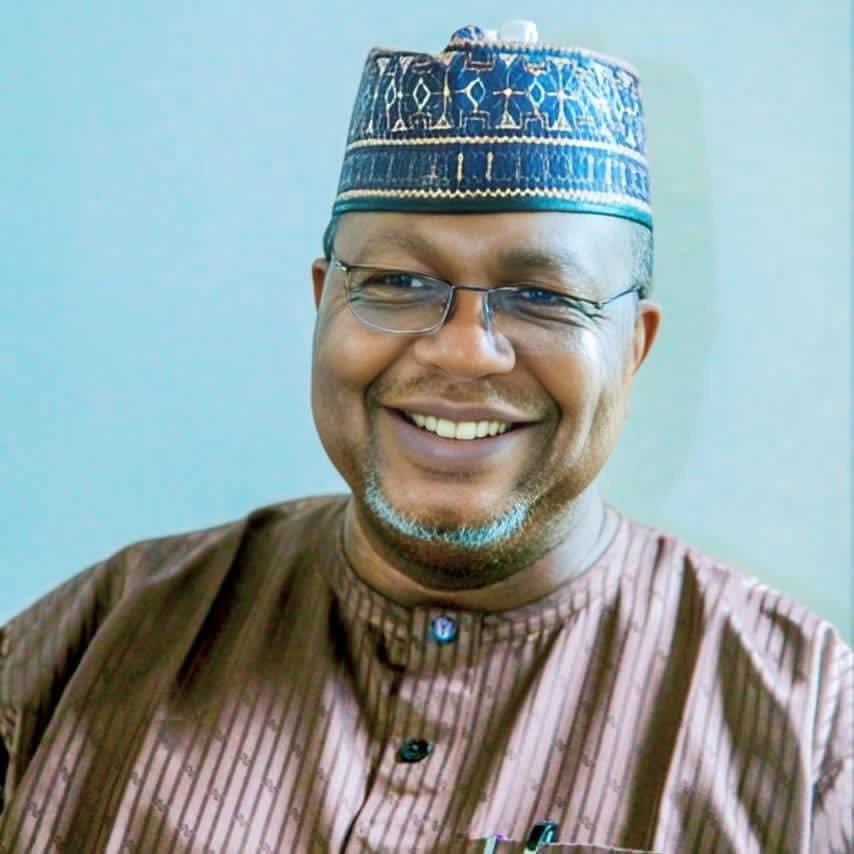
Governor of Kaduna State, Senator Uba Sani, has appointed Ben Solomon Dalhatu Kure as the Managing Director of Kaduna State Media Corporation (KSMC).
Ibraheem Musa, Chief Press Secretary to the Governor, disclosed this in a statement at the weekend.
Kure replaced Ahmed Maiyaki, who has just been appointed the Commissioner for Information.
He is expected to build on Mr. Ahmed Maiyaki’s leadership, which has repositioned the media corporation.
Before this appointment, Kure served as the Chairman of Jaba Local Government from 2016 to 2017, Executive Secretary of the Kaduna State Emergency Management Agency from 2018 to 2019, and Special Adviser (Political Matters) to the Kaduna State Governor from 2019 to 2021.
Business
Nationwide fuel distribution: Dangote Refinery takes Delivery of CNG trucks
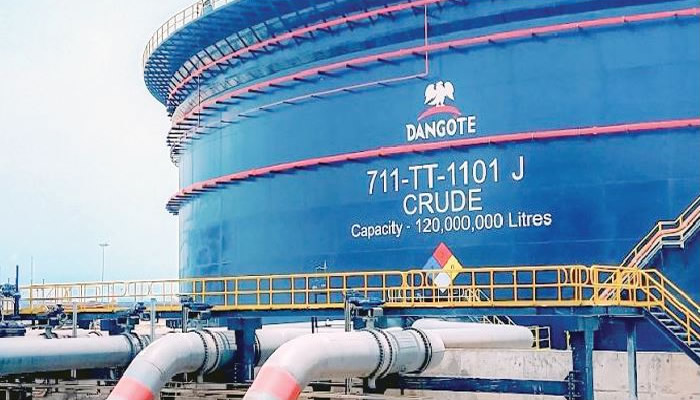
Dangote Refinery has announced the delivery of its first shipment of compressed natural gas trucks to facilitate its nationwide premium motor spirit and automotive gas oil supply from August 15, 2025.
The 650,000-barrel-per-day refinery disclosed this in a statement by its spokesperson, Anthony Chijiena, on Sunday.
According to him, the refinery, the N720 billion worth investment scheme, is aimed at transforming Nigeria’s fuel distribution landscape by reducing logistics costs and enhancing supply efficiency for customers.
“The fleet of fuel tankers, being imported through Apapa Port, represents a significant capital investment estimated at N720 billion.
“The first consignment of trucks recently departed Apapa Port and was formally received at the refinery site in Ibeju-Lekki by the Vice-President of Oil and Gas at Dangote Industries Ltd., Devakumar Edwin,” the statement reads.
Recall that Dangote Refinery had announced that the fuel distribution scheme would cause a major shakeup in the country’s oil and gas downstream sector.
However, petroleum product retail outlet owners and the Natural Gas Suppliers Association of Nigeria have, in different forums, kicked against the scheme, saying it would result in massive job losses.
Business
Naira returns to appreciation against dollar as Nigeria’s external reserves swell

The naira bounced back to appreciate against the dollar at the official foreign exchange market on Thursday as Nigeria’s external reserves continued to rise.
The Central Bank of Nigeria’s data showed that the Naira gained slightly at N1,533.73 against the dollar on Thursday from N1,534.44 traded on Wednesday.
This means that Nigeria’s currency marginally strengthened by N0.70 against the dollar on a day-to-day basis.
Meanwhile at the black market, the Naira remained flat at N1,565 on Thursday, the same exchange rate recorded the previous day.
The development follows the continued rise in the country’s external reserves, which stood at $39.99 billion as of 6th August 2025, up from $39.81 billion on the 4th of this month, CBN data showed.
Ekwutosblog reports that in the past four days, the Naira has recorded mixed sentiments of depreciation and appreciation against other currencies.
-

 Politics10 months ago
Politics10 months agoMexico’s new president causes concern just weeks before the US elections
-
Business10 months ago
US court acquits Air Peace boss, slams Mayfield $4000 fine
-

 Trending10 months ago
Trending10 months agoNYA demands release of ‘abducted’ Imo chairman, preaches good governance
-
Entertainment10 months ago
Bobrisky falls ill in police custody, rushed to hospital
-
Entertainment10 months ago
Bobrisky transferred from Immigration to FCID, spends night behind bars
-

 Politics10 months ago
Politics10 months agoRussia bans imports of agro-products from Kazakhstan after refusal to join BRICS
-

 Politics10 months ago
Politics10 months agoPutin invites 20 world leaders
-
Education12 months ago
GOVERNOR FUBARA APPOINTS COUNCIL MEMBERS FOR KEN SARO-WIWA POLYTECHNIC BORI





